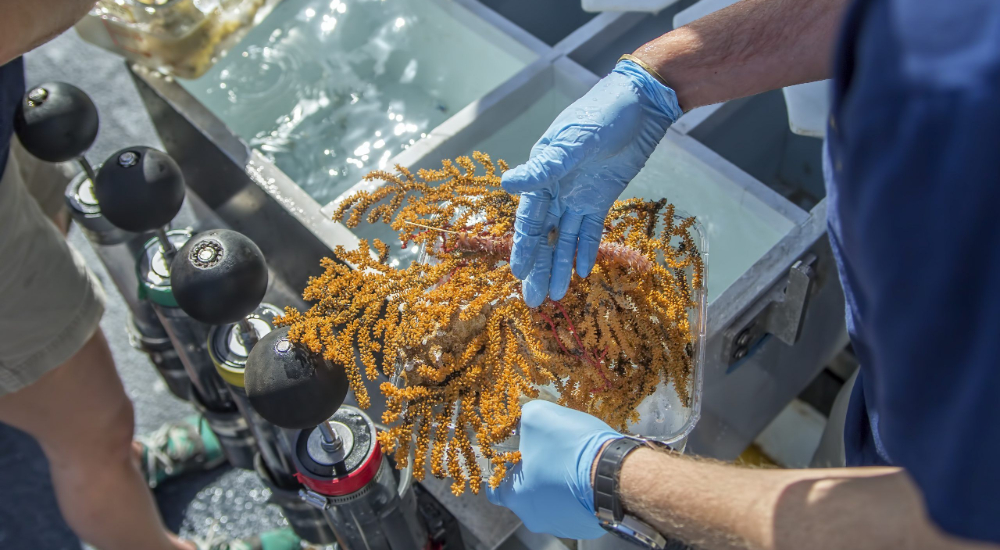An international, multidisciplinary team of marine scientists has identified 30 new species of marine invertebrates in the Galapagos waters, the archipelago’s national park authorities recently announced. This discovery includes eleven species of sponges, ten of bamboo corals, four of squat lobsters, three of octocorals, one of giant cup coral, and one of brittle starfish. The exploration also unveiled a series of underwater communities such as coral gardens, cold-water coral colonies, and crystal sponge gardens.
The Galapagos archipelago, located 1,000 kilometers (620 miles) of Ecuador, is a unique island ecosystem that has the highest level of biodiversity than any other region on the planet. These islands are a place of wonder for scuba divers that come here particularly for the big and rare marine life. But Galapago’s protected status, unique topography, and favorable climate have also created ideal conditions for a diverse array of deep-sea communities.
“This finding confirms that Galapagos is a living laboratory with biological and ecological processes in progress and yet to be explored, which make it an exceptional site that merits all our efforts to be conserved,” said Paulo Proaño, Ecuador’s Minister of Environment and Water.
The research was conducted by a multidisciplinary and comprehensive team of scientists from the Ocean Exploration Trust, the Charles Darwin Foundation (CDF) and the Galapagos National Park Directorate. Scientists used remote operated vehicles to reach depths of up to 3,400 meters. The expedition explored three steep-sided seamounts in the northern area of the Galapagos archipelago.
The pristine seamounts located within the Galapagos Marine Reserve are protected from environmentally harmful human practices such as fishing with bottom trawls or deep-sea mining, which can have devastating impacts upon the fragile marine life that lives in these rich waters.
According to the US Department of Commerce’s National Oceanic and Atmospheric Administration (NOAA), more than 80 percent of the ocean remains unexplored and unmapped. Researchers believe that the findings made on the Galapagos expedition showcase the importance of exploring the deep sea to develop an understanding of our oceans.
The results of this scientific research are published in the journal Scientific Reports and can be accessed by any person interested in learning more about these outstanding discoveries.
Featured image credits: Ocean Exploration Trust/Nautilus Live
